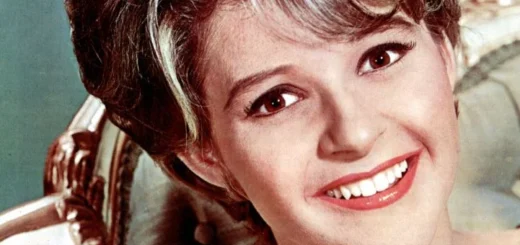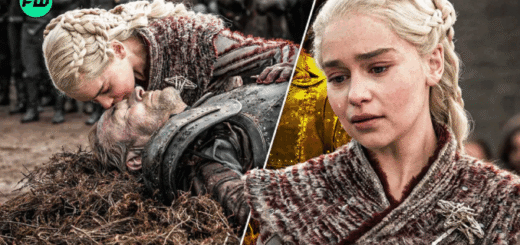The cruellest twist of JFK’s assassination has been uncovered in a new intimate account of his final days — but what’s sending chills through historians is Jackie Kennedy’s eerie 3am premonition the night before he died, a whispered warning she reportedly shared only once and never spoke of again, a moment so unsettling that those who’ve read the newly revealed notes say it changes everything we thought we knew about Dallas, about fate, and about the final hours of America’s most mythologised president.
In yesterday’s Daily Mail, we revealed the depths to which Jack Kennedy fell for the beautiful and spirited Joan Lundberg, a flight attendant who lived in a trailer park. Her pregnancy nearly sunk his marriage to Jackie but America’s golden couple endured, and even blossomed, before tragedy struck...
On the morning of Sunday, October 20, 1963, a month before he was assassinated, President John F. Kennedy paid a visit to his father Joe at his home in Hyannis Port, Massachusetts.
He and Joe, who remained incapacitated following a stroke, went out on the family yacht after having breakfast together. Then Jack – as he was widely known – went for a stroll on the beach with his wife Jackie.
As their neighbours Larry Newman and his wife Sancy watched, Jack set up a bowl of water, a can of shaving cream, and a razor next to a folding chair and began shaving his face under the hot sun.
As he did so, Jackie knelt behind him and ran her fingers through his hair.
‘They appeared to be such a loving couple with not a care in the world,’ said Sancy Newman. ‘It was so lovely and so intimate, I was actually a little mesmerised by it.’ It was an image all the more striking because of the long-standing problems in the Kennedy marriage.
In 1956, only three years after their wedding, a fellow guest at a dinner party held in one of Washington’s most exclusive social clubs had asked Jackie how she liked being married to a senator.

President John F. Kennedy and Jackie at Dallas airport on November 22, 1963, ahead of the fateful drive through the city that would end with his assassination
This was days after she had discovered that Jack had been sleeping with a flight attendant named Joan Lundberg – and she was in no mood for pretence.
‘It was the biggest goddamn mistake of my life,’ she snapped.
The man she was speaking to was taken aback but she didn’t care and it was left to her stepfather Hugh to apologise and explain they were dealing with ‘a rather delicate’ family matter.
‘We don’t always make the right choices in marriage,’ he said. ‘Jackie will make a better choice next time.’
As I described in yesterday’s Daily Mail, that had seemed a serious possibility at one point.
The affair with Joan Lundberg so angered Jackie that she had hired divorce lawyers, backing down only when her father-in-law bribed her with today’s equivalent of £1.4million to stay in the marriage.
The deal she made with her husband was that, while she knew she had to come to terms with the notion of his infidelity, he should do nothing to embarrass her.
‘Don’t you dare rub it in my face,’ she had warned him, but he had come perilously close to doing just that – subsequently getting Joan pregnant and paying for her to have an abortion shortly before she ended the affair.
Fortunate that Joan had agreed to terminate the pregnancy, he’d had a close call and he’d never forget it, vowing never to get into a similar situation again. Thereafter, he rethought his version of infidelity, as he explained to the actor Peter Lawford, his sister Pat’s husband.

JFK’s affair with Joan Lundberg so angered Jackie that she had hired divorce lawyers, backing down only when her father-in-law bribed her with today’s equivalent of £1.4million to stay in the marriage
‘One night here with a girl, and one night there, that’s OK, I guess, but an actual relationship? No. That can only be with Jackie. I will never take a chance with my marriage again.’ Some of those nights ‘here’ and ‘there’ were spent with Judy Campbell, a raven-haired divorcee with full lips and dark eyes.
Intelligent, charismatic and a great conversationalist, she had briefly dated Frank Sinatra and he introduced her to Jack following a ‘Rat Pack’ show in Las Vegas in February 1960.
To Jack, she looked just like Joan Lundberg but although there are enough entries in White House visitor logs to suggest that their liaisons continued after he was elected president in November that year, he seems to have successfully avoided getting into a relationship with her.
Those liaisons came to an end in December 1962 when his brother Bobby, aware that Judy was a friend of leading Chicago mobster Sam Giancana, pointed out the potential for blackmail and told him he should finish it.
Jack agreed. She’d just been a lark anyway. It wasn’t that difficult for him to let her go, even if Judy appears to have had more trouble breaking things off, continuing to call him until Jackie threatened to have the Secret Service track her down. She never called again.
‘Very little got by the First Lady,’ recalled Secret Service agent Anthony Sherman. ‘She was not naive to any of it, trust me.’
To that end, Jackie had installed a spy in the office of Jack’s PA to keep her abreast of any suspicious calls. A woman she knew through family connections, she was hired as a secretary at Jackie’s suggestion.
‘Just keep me posted of anything that perks your ears,’ Jackie told her – and so she became fully aware of regular visits to the White House made by Mary Meyer, a pretty blonde divorcee who was the sister-in-law of one of their good friends.
Although Jackie had specifically demanded discretion from her husband years earlier, she tolerated Mary’s presence because Jack had sworn to her that she only offered him oral sex and, like many women of the time, Jackie believed that this didn’t constitute ‘real’ sex.
‘Jackie took a dim view of Mary because of the way she knew she serviced Jack,’ said one of her family members. ‘She had no respect for her: ‘If that’s the kind of reputation she wants around here,’ she said, meaning the White House, ‘that’s her problem’.

Jackie became aware of regular visits to the White House made by Mary Meyer, who was the sister-in-law of one of their good friends. She tolerated her presence because Jack had sworn to her that she only offered him oral sex and, like many women of the time, Jackie believed that this didn’t constitute ‘real’ sex
‘She also felt Mary was jealous of her. ‘She wants all of this,’ she told me, motioning her surroundings, ‘but she’ll never have it. Maybe someone should tell her that easy women don’t find husbands’.’
Mary Meyer’s visits came to an end when Phil Graham, publisher and co-owner of the Washington Post, got drunk at a newspaper convention and gave a mostly incoherent speech in which he referred obliquely to Jack’s affair with her, joking that she was ‘the president’s new favourite’.
The next day, fearing Graham’s remarks would be reported since they were delivered to a room full of Press people, Jack felt he had no choice but to tell Jackie about the potentially humiliating revelations.
‘Mary Meyer is finished,’ she told him. ‘It’s either her or me. You choose.’ She was now drawing a line in the sand, adding that if their marriage was to survive the next year in the White House, or the next four after that, things would have to change.
After she spoke to Jack, she called Mary. We don’t know the details of that conversation, only that Jackie said she told her: ‘I want you to stay the hell away from my husband.’
It seemed that this warning was unnecessary because, by the beginning of 1963, Jack was beginning to feel remorseful about not only Mary Meyer but any woman he’d ever had in his bed who wasn’t his wife.
‘I remember him telling me, ‘I love Jackie. She’s my whole life’,’ said his friend, Democrat Senator George Smathers. ‘I thought to myself, ‘Oh yeah? Since when? Since when has Jackie ever been your whole life?’

The affair with Judy Campbell came to an end when JFK’s brother Bobby, aware that Judy (pictured with her then husband, actor William Campbell) was a friend of leading Chicago mobster Sam Giancana, pointed out the potential for blackmail and told him he should finish it
‘But he was changing. Things were different. We could all see it. He told me, ‘Every bad decision I’ve ever made has been my own fault. I’m sick of being a chip off the old block’. I sure knew what that meant.’
It seems that Jack Kennedy might finally have come face-to-face with a hard truth, that the worst parts of himself reminded him of the worst parts of his father Joe – a rampant philanderer whose infidelity had left his mother Rose feeling unheard, unvalued and unloved for so many years.
Like all the Kennedys, Jack was known to be a stoic person but that August in 1963 he surprised friends and family with the depth of his feeling when his and
Jackie’s son Patrick – who would have been a younger brother to Caroline, then five, and John Junior, two – was born prematurely and died shortly afterwards.
He choked back tears as he told his brother Teddy’s wife Joan that he felt he was being punished, that he’d made some big mistakes along the way and now God was taking retribution on him.
‘I haven’t been the best husband and it’s very painful,’ he told her. ‘And by painful, I mean shameful.’
Perhaps, with the passage of more time, he would’ve figured out certain things about himself and worked to square things with those he loved. But tragically, the clock was beginning to run out.
With his first term well under way, it now made sense to look towards the second and he really needed to make a trip to Texas where his liberal civil rights policies had seen his popularity sinking.

With that in the offing, Jackie had to think long and hard about Texas governor John Connally’s suggestion that she should accompany Jack.
‘The women want to see her,’ Connally told him. ‘They want to see what her hairdo and clothes look like. It’s important to them.’
While Jackie had made about a dozen trips with Jack abroad, she hadn’t accompanied him on any official domestic trips since he had become president and her trepidation had to do with a feeling she’d once had at his side in the days of his campaign for the Senate.
Back then, she’d felt invisible and unnecessary. Now she realised the public had really grown to know and admire her, and that she was an integral part of a powerful political team. She liked it and felt she could really contribute to it, and so she agreed to go to Texas with her husband.
Before that trip, Jackie took Caroline and John Jr to the Kennedys’ new summer home, which they’d just finished building in Atoka, Virginia, and, while she was away, Jack summoned Mary Meyer to the White House. She arrived an hour later but, based on conversations they later had with others, he did not take her to his bed, instead sending her home.
‘He told me two weeks later that he had a woman at the White House but that he’d had a change of heart,’ recalled George Smathers. ‘He said he looked at her and had, I guess, a crisis of conscience, which he resolved by saying to himself, ‘Hell, no. I’m not doing this. I’m done with this’.
‘When he told me the story, I said, ‘But, Jack, that’s huge’.’
Jack might not have changed overnight but he was definitely trying. That night, he flew to Atoka to be with Jackie.
Later, as the sun went down, they snuggled on a hammock, their feet intertwined, whispering to each other as they watched the sky fill with colours. As he stroked her hair, there were long stretches of contented silence between them. It was as if he finally realised that all he ever needed was right there, with him, in that moment.
For her part, Jackie would recall feeling as if she were ‘maybe for the first time, loved, wanted and cared for’.
Or, as she told her mother: ‘Maybe Jack and I don’t have a perfect marriage but, somehow, we’re perfect for each other.’
The three weeks of that final, fateful November in Jack’s life passed quickly. Before leaving for Texas, Jackie shared a surprising secret with her mother. Two months earlier, following a family celebration of their tenth wedding anniversary, she and Jack had privately given each other gifts.
She presented him with a new St Christopher’s medal because she knew he’d placed his own in Patrick’s coffin.
In turn, he gave her a gold-and-emerald ring which, he explained, represented the same fighting spirit of the Irish he’d seen in their son’s fight for survival. He slipped it onto Jackie’s finger next to her wedding band.

Jackie and JFK with their daughter Caroline at their summer house in Atoka, Virginia
Before he did so, however, he’d dropped to one knee and asked her to marry him, a gesture which meant the world to her because he’d never actually asked for her hand in marriage. Not officially, anyway.
They planned to renew their vows on their 11th wedding anniversary in September 1964 and those around them noticed Jack being much more loving. Journalist Ben Bradlee, a good friend of the Kennedys, recalled him greeting her with ‘by far the most affectionate embrace we had ever seen them give each other.
‘We wondered about it, figured it was because of Patrick but, looking back, I think maybe it was more than that’.
Although the renewal of their vows was still a year away, Jackie had already started to think about what dress she might wear – pale yellow or light blue, something in silk, knee-length.
But in the meantime there were more pressing concerns, like their visit to Dallas.
Jackie would later recall that as their Lincoln convertible passed through the city’s Dealey Plaza in the blazing heat of Friday, November 22, Jack turned to her and smiled, looking, as she would later remember, more handsome than ever.
He then turned back to the happy faces of the admiring crowd.
That’s when she heard the sound. The pop of a firecracker? The backfire of a motorcycle?
Jack flinched. He grabbed his throat. He lurched to the left and looked at Jackie with a puzzled expression.
There was another pop. Then, another. Three in six seconds. Then… just red. Blood red.
Then… black.
After a mad race to Parkland Hospital, Jackie, her pink outfit splattered with blood, stood next to Jack’s body.
It was laid out on a stretcher and covered by a white sheet.
She bent down, took his foot in her hand and kissed it. She pulled back the sheet. His eyes were wide and staring. She gazed down at his face, which somehow seemed so young to her.
‘His mouth was so beautiful,’ she recalled. She kissed his lips.
A week after the assassination, in a conversation with her mother and stepbrother Yusha, Jackie would remember her last night with Jack. It was in Fort Worth’s Hotel Texas, suite 850, after an exhausting day of campaigning.
On that day, as she recalled it, she really felt as if she’d found her momentum and had grown into the role of a true political partner for her husband.
By the time they got to their hotel room, they were both exhausted.
They rarely slept in the same bed though. In Fort Worth, they’d be in adjoining bedrooms in the same suite. However, before retiring, Jackie recalled Jack wanting to spend a few moments with her.
‘You were great today,’ he told her. ‘How do you feel?’
‘Oh, gosh, I’m exhausted,’ she answered as he held her close.
Realising how tired she was, he told her she didn’t have to appear for a speech the next morning at 8:30. If she could be ready by 9:15 for breakfast in the hotel’s grand ballroom, that would be fine.
‘It’s almost over,’ he told her, reassuringly. ‘Dallas. Then, Austin.’
Jackie said she returned to her own room and laid out her clothes for the next day – the pink suit with navy collar and matching pink pillbox hat.
After brushing her hair to get ready for bed, Jackie retired for the evening but at about three in the morning she woke with a start.
‘She knew she needed to be with Jack,’ her mother explained. ‘She just knew. She didn’t know how else to explain it.’
Jackie went to Jack’s door, tapped lightly, let herself into his room and crawled into his bed. They then made love. Afterwards, she said, she returned to her own room. Then she fell asleep, unaware that, to borrow her own delicate phrasing, she and Jack had been ‘together as husband and wife’ for what would be the very last time.



